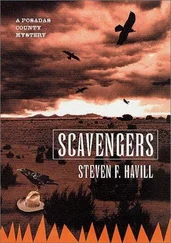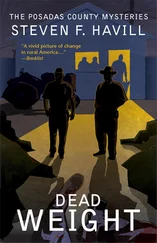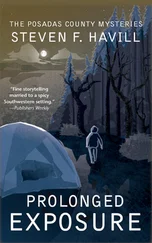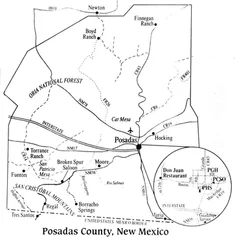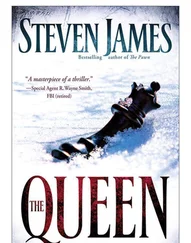Steven Levitt - Freakonomics
Здесь есть возможность читать онлайн «Steven Levitt - Freakonomics» весь текст электронной книги совершенно бесплатно (целиком полную версию без сокращений). В некоторых случаях можно слушать аудио, скачать через торрент в формате fb2 и присутствует краткое содержание. Год выпуска: 2005, ISBN: 2005, Издательство: HarperCollins Publishers Ltd., Жанр: Прочая научная литература, на английском языке. Описание произведения, (предисловие) а так же отзывы посетителей доступны на портале библиотеки ЛибКат.
- Название:Freakonomics
- Автор:
- Издательство:HarperCollins Publishers Ltd.
- Жанр:
- Год:2005
- ISBN:ISBN 0-06-083822-1
- Рейтинг книги:5 / 5. Голосов: 1
-
Избранное:Добавить в избранное
- Отзывы:
-
Ваша оценка:
- 100
- 1
- 2
- 3
- 4
- 5
Freakonomics: краткое содержание, описание и аннотация
Предлагаем к чтению аннотацию, описание, краткое содержание или предисловие (зависит от того, что написал сам автор книги «Freakonomics»). Если вы не нашли необходимую информацию о книге — напишите в комментариях, мы постараемся отыскать её.
Freakonomics — читать онлайн бесплатно полную книгу (весь текст) целиком
Ниже представлен текст книги, разбитый по страницам. Система сохранения места последней прочитанной страницы, позволяет с удобством читать онлайн бесплатно книгу «Freakonomics», без необходимости каждый раз заново искать на чём Вы остановились. Поставьте закладку, и сможете в любой момент перейти на страницу, на которой закончили чтение.
Интервал:
Закладка:
But if the Ku Klux Klan of the 1940s wasn’t uniformly violent, what was it? The Klan that Stetson Kennedy found was in fact a sorry fraternity of men, most of them poorly educated and with poor prospects, who needed a place to vent—and an excuse for occasionally staying out all night. That their fraternity engaged in quasi-religious chanting and oath taking and hosanna hailing, all of it top secret, made it that much more appealing.
Kennedy also found the Klan to be a slick money-making operation, at least for those near the top of the organization. Klan leaders had any number of revenue sources: thousands of dues-paying rank-and-file members; business owners who hired the Klan to scare off the unions or who paid the Klan protection money; Klan rallies that generated huge cash donations; even the occasional gunrunning or moonshine operation. Then there were rackets like the Klan’s Death Benefit Association, which sold insurance policies to Klan members and accepted only cash or personal checks made out to the Grand Dragon himself.
After just a few weeks inside the Klan, Kennedy was eager to hurt it any way he could. When he heard about Klan plans for a union-busting rally, he fed the information to a union friend. He passed along Klan information to the assistant attorney general of Georgia, an established Klan buster. After researching the Klan’s corporate charter, Kennedy wrote to the governor of Georgia suggesting the grounds upon which the charter should be revoked: the Klan had been designated a non-profit, non-political organization, but Kennedy had proof that it was clearly devoted to both profits and politics.
None of Kennedy’s efforts produced the desired effect. The Klan was so entrenched and broad-based that Kennedy felt as if he were tossing pebbles at a giant. And even if he could somehow damage the Klan in Atlanta, the thousands of other chapters around the country—the Klan was by now in the midst of a serious revival—would go untouched.
Kennedy was supremely frustrated, and out of this frustration was born a stroke of brilliance. He had noticed one day a group of young boys playing some kind of spy game in which they exchanged silly secret passwords. It reminded him of the Klan. Wouldn’t it be nice, he thought, to get the Klan’s passwords and the rest of its secrets into the hands of kids all across the country? What better way to defang a secret society than to infantilize—and make public—its most secret information? (Coincidentally, in Birth of a Nation, a former Confederate soldier is inspired to start the Klan when he sees a pair of white children hide under a sheet to scare a group of black children.)
Kennedy thought of the ideal outlet for this mission: the Adventures of Superman radio show, broadcast each night at dinnertime to millions of listeners nationwide. He contacted the show’s producers and asked if they would like to write some episodes about the Ku Klux Klan. The producers were enthusiastic. Superman had spent years fighting Hitler and Mussolini and Hirohito, but with the war over, he was in need of fresh villains.
Kennedy began feeding his best Klan information to the Superman producers. He told them about Mr. Ayak and Mr. Akai, and he passed along overheated passages from the Klan’s bible, which was called the Kloran. (Kennedy never did learn why a white Christian supremacist group would give its bible essentially the same name as the most holy book of Islam.) He explained the role of Klan officers in any local Klavern: the Klaliff (vice president), Klokard (lecturer), Kludd (chaplain), Kligrapp (secretary), Klabee (treasurer), Kladd (conductor), Klarogo (inner guard), Klexter (outer guard), the Klokann (a five-man investigative committee), and the Klavaliers (the strong-arm group to which Kennedy himself belonged, and whose captain was called Chief Ass Tearer). He spelled out the Klan hierarchy as it proceeded from the local to the national level: an Exalted Cyclops and his twelve Terrors; a Great Titan and his twelve Furies; a Grand Dragon and his nine Hydras; and the Imperial Wizard and his fifteen Genii. And Kennedy told the producers the current passwords, agenda, and gossip emanating from his own Klan chapter, Nathan Bedford Forrest Klavern No. 1, Atlanta, Realm of Georgia.
The radio producers began to write four weeks’ worth of programs in which Superman would wipe out the Ku Klux Klan.
Kennedy couldn’t wait for the first Klan meeting after the show hit the air. Sure enough, the Klavern was in distress. The Grand Dragon tried to run a normal meeting but the rank and file shouted him down. “When I came home from work the other night,” one of them complained, “there was my kid and a bunch of others, some with towels tied around their necks like capes and some with pillowcases over their heads. The ones with capes was chasing the ones with pillowcases all over the lot. When I asked them what they were doing, they said they were playing a new kind of cops and robbers called Superman against the Klan. Gangbusting, they called it! Knew all our secret passwords and everything. I never felt so ridiculous in all my life! Suppose my own kid finds my Klan robe some day?”
The Grand Dragon promised to expose the Judas in their midst.
“The damage has already been done,” said one Klansman.
“Our sacred ritual being profaned by a bunch of kids on the radio!” said the Kladd.
“They didn’t put it all on the air,” the Grand Dragon offered.
“What they didn’t broadcast wasn’t worth broadcasting,” said the Kladd.
The Dragon suggested they change their password immediately, from “red-blooded” to “death to traitors.”
After that night’s meeting, Kennedy phoned in the new password to the Superman producers, who promised to write it into the next show. At the following week’s Klan meeting, the room was nearly empty; applications for new membership had fallen to zero.
Of all the ideas that Kennedy had thought up—and would think up in the future—to fight bigotry, his Superman campaign was easily the cleverest and probably the most productive. It had the precise effect he hoped: turning the Klan’s secrecy against itself, converting precious knowledge into ammunition for mockery. Instead of roping in millions of members as it had just a generation earlier, the Klan lost momentum and began to founder. Although the Klan would never quite die, especially down South—David Duke, a smooth-talking Klan leader from Louisiana, mounted legitimate bids for the U.S. Senate and other offices—it was also never quite the same. In The Fiery Cross: The Ku Klux Klan in America, the historian Wyn Craig Wade calls Stetson Kennedy “the single most important factor in preventing a postwar revival of the Ku Klux Klan in the North.”
This did not happen because Kennedy was courageous or resolute or unflappable, even though he was all of these. It happened because Kennedy understood the raw power of information. The Ku Klux Klan was a group whose power—much like that of politicians or real-estate agents or stockbrokers—was derived in large part from the fact that it hoarded information. Once that information falls into the wrong hands (or, depending on your point of view, the right hands), much of the group’s advantage disappears.
In the late 1990s, the price of term life insurance fell dramatically. This posed something of a mystery, for the decline had no obvious cause. Other types of insurance, including health and automobile and homeowners’ coverage, were certainly not falling in price. Nor had there been any radical changes among insurance companies, insurance brokers, or the people who buy term life insurance. So what happened?
The Internet happened. In the spring of 1996, Quotesmith.com became the first of several websites that enabled a customer to compare, within seconds, the price of term life insurance sold by dozens of different companies. For such websites, term life insurance was a perfect product. Unlike other forms of insurance—including whole life insurance, which is a far more complicated financial instrument—term life policies are fairly homogeneous: one thirty-year, guaranteed policy for $1 million is essentially identical to the next. So what really matters is the price. Shopping around for the cheapest policy, a process that had been convoluted and time-consuming, was suddenly made simple. With customers able to instantaneously find the cheapest policy, the more expensive companies had no choice but to lower their prices. Suddenly customers were paying $1 billion less a year for term life insurance.
Читать дальшеИнтервал:
Закладка:
Похожие книги на «Freakonomics»
Представляем Вашему вниманию похожие книги на «Freakonomics» списком для выбора. Мы отобрали схожую по названию и смыслу литературу в надежде предоставить читателям больше вариантов отыскать новые, интересные, ещё непрочитанные произведения.
Обсуждение, отзывы о книге «Freakonomics» и просто собственные мнения читателей. Оставьте ваши комментарии, напишите, что Вы думаете о произведении, его смысле или главных героях. Укажите что конкретно понравилось, а что нет, и почему Вы так считаете.





